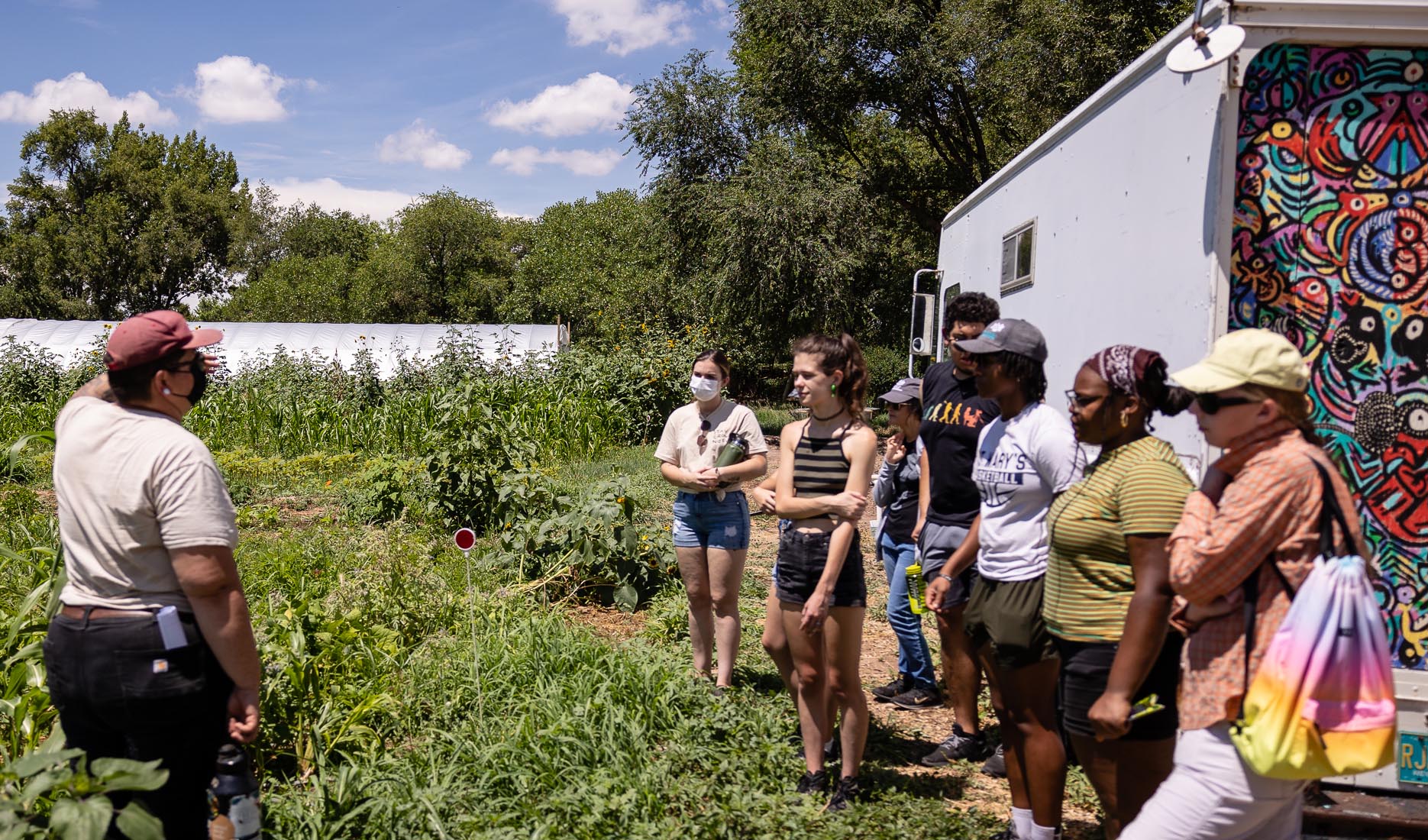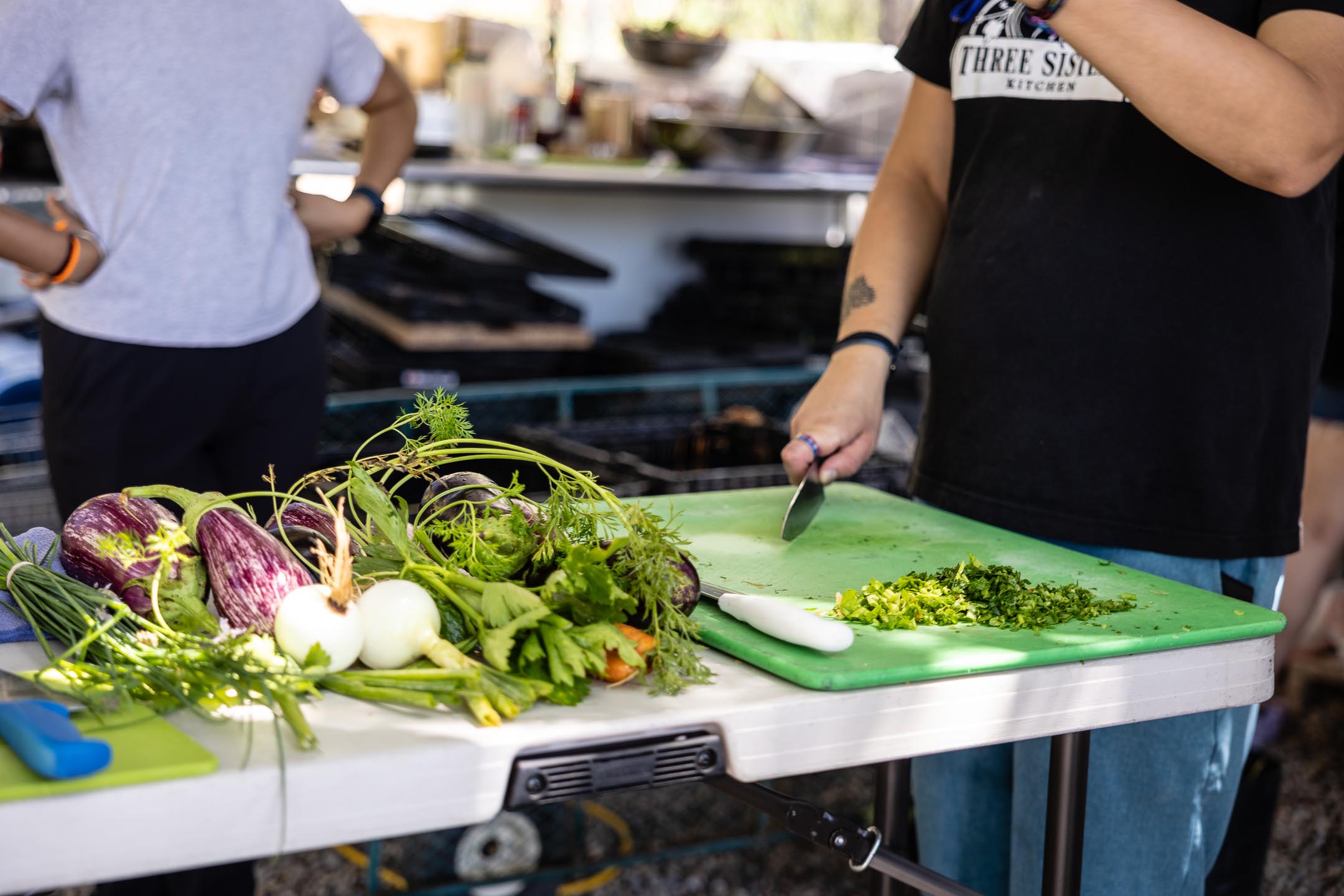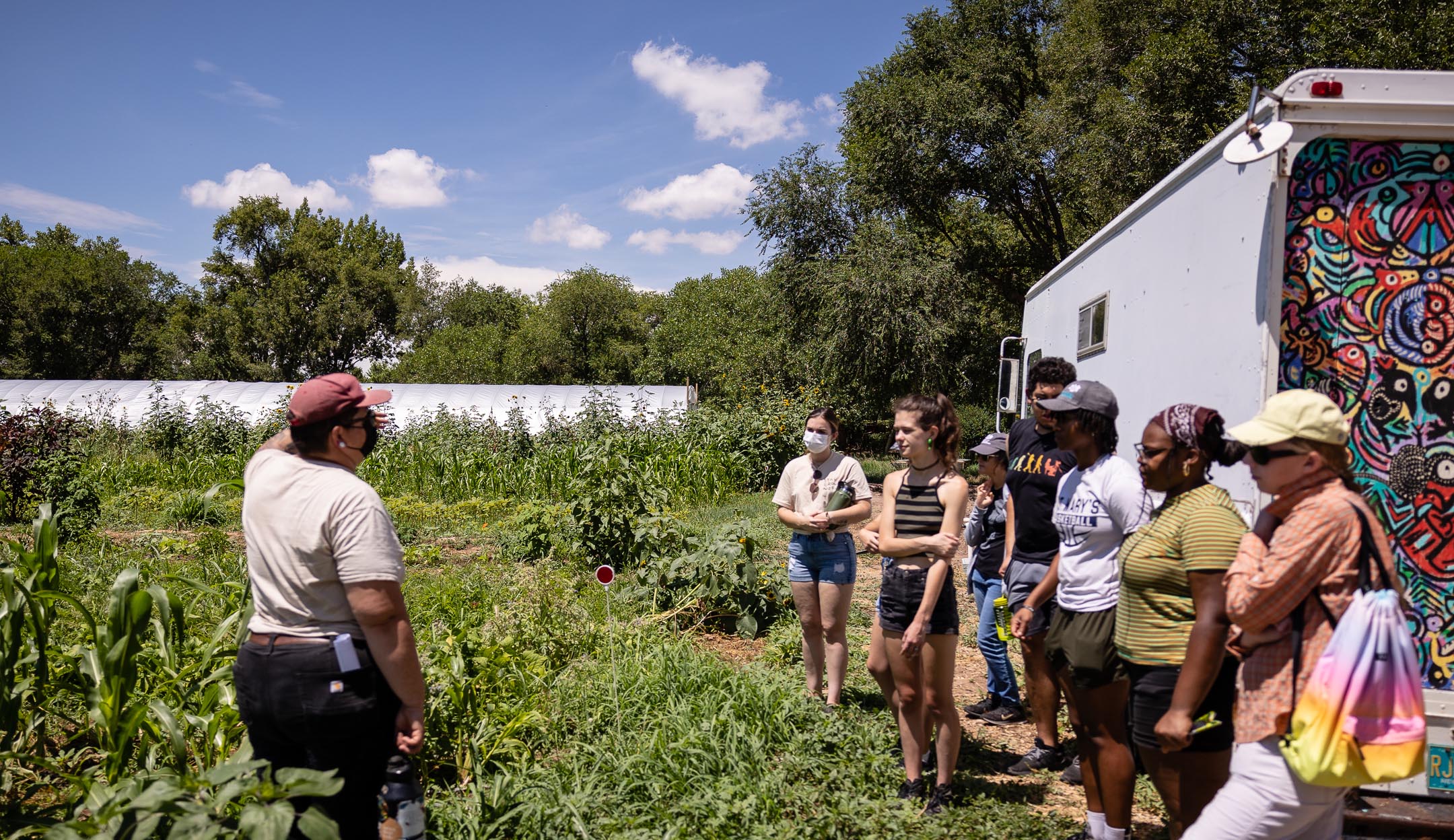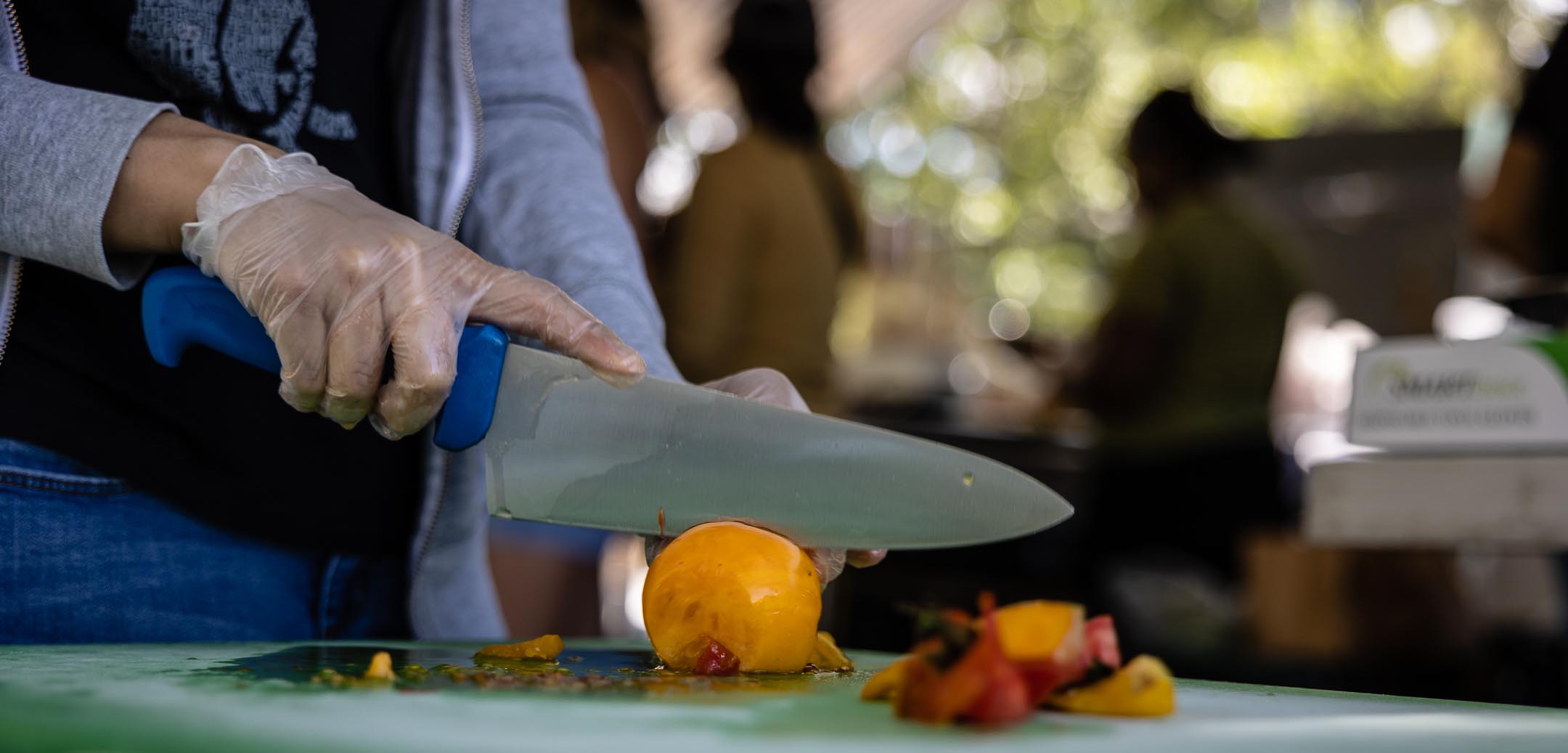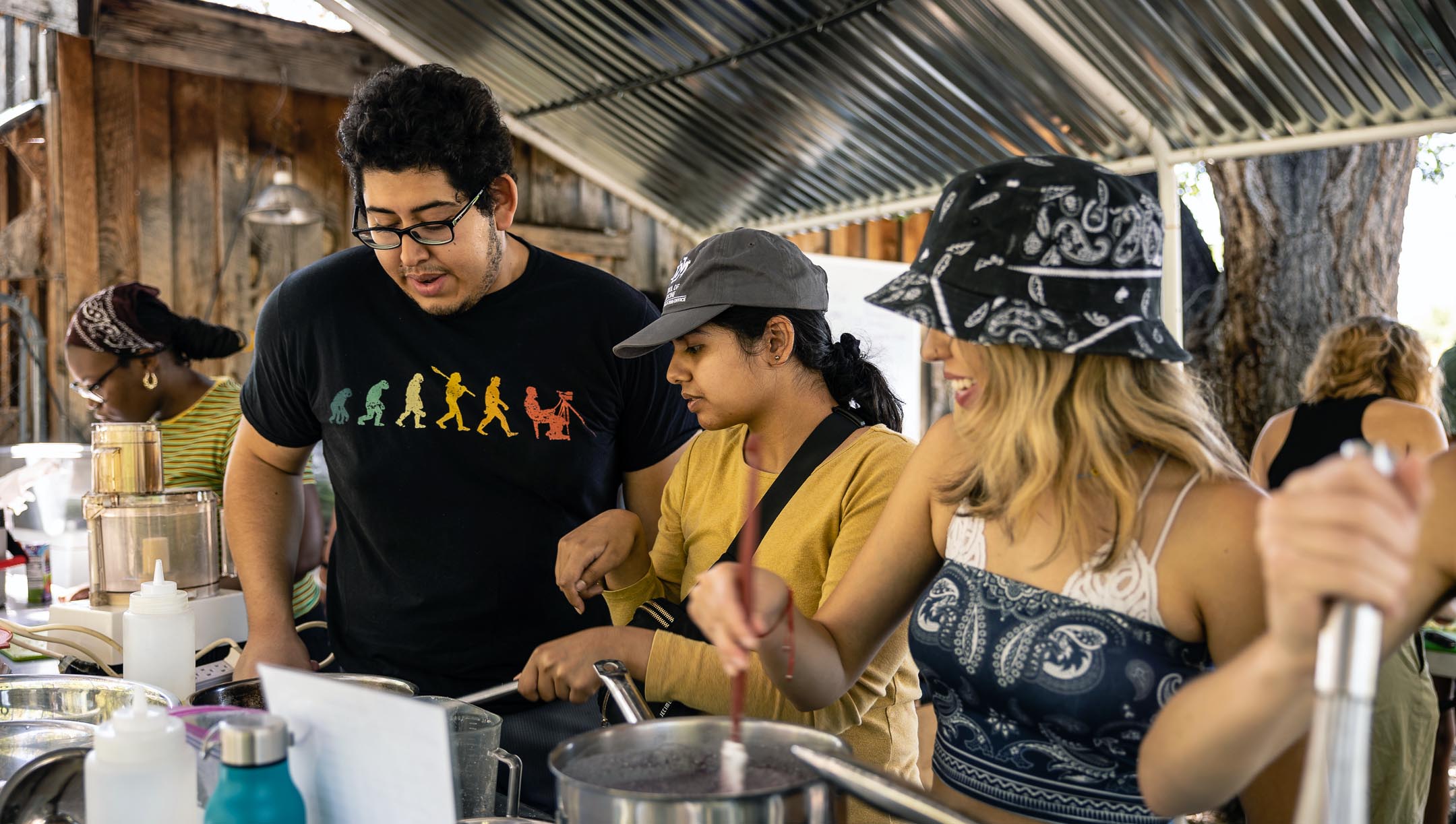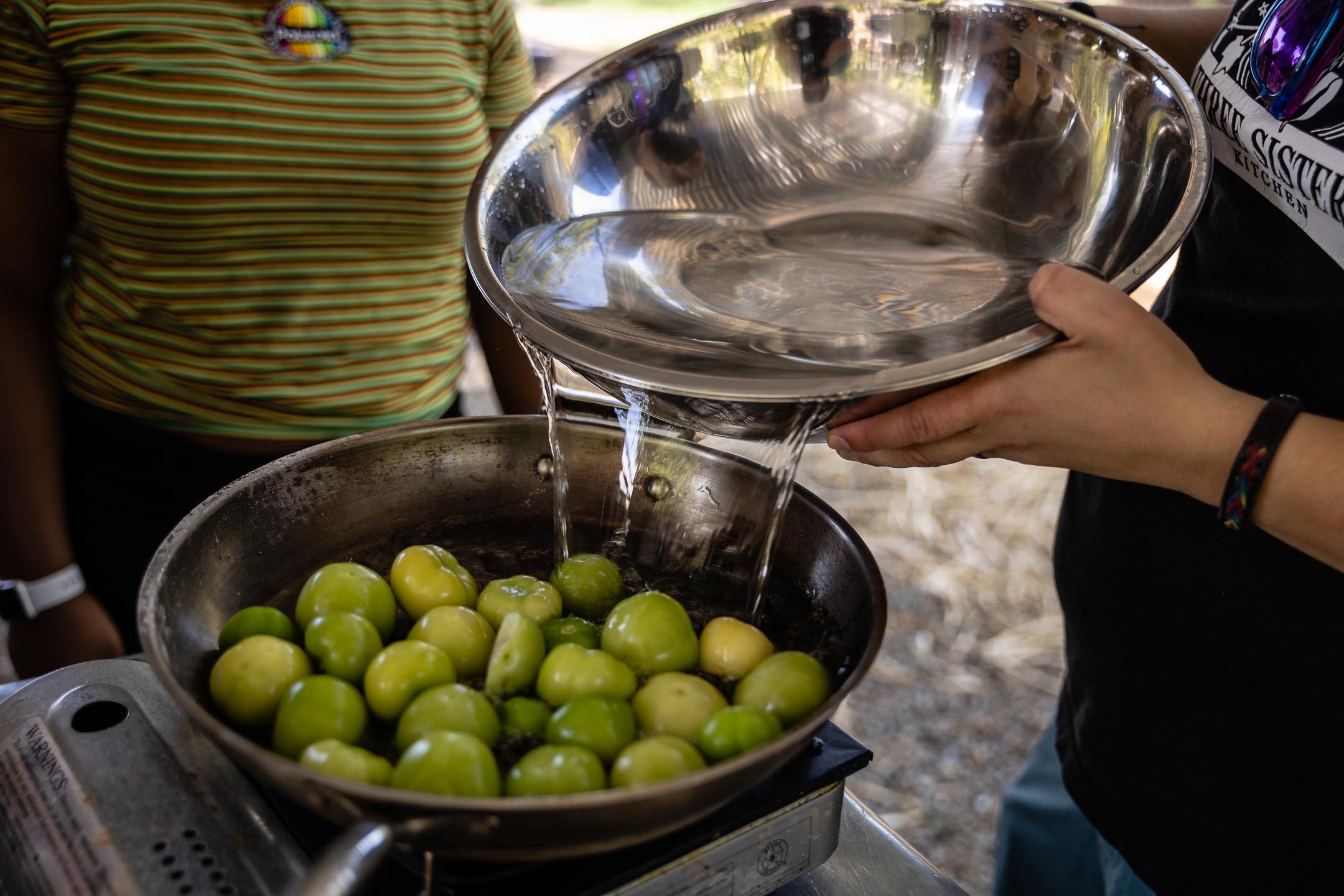The words “summer research program” evoke many things, but most likely the first thing that leapt to mind was not “spending a Saturday on the farm.”
For this year’s Undergraduate Pipeline Network (UPN) cohort, that’s precisely where they landed. UPN enables undergraduate scholars from across the country to come to The University of New Mexico Health Sciences to conduct summer research projects.
According to Tara Hackel, program manager of the UNM School of Medicine Research Education Office, “The students primarily participate in an individual research project with a faculty mentor. We also do cohort-building events that can be adjacent to or entirely outside of research – such as rock climbing, the zoo, etc.”
As a supporter of Chispas Farm in the South Valley, it occurred to Hackel that the UPN students could learn a lot there about research – namely how local farming and the food we eat impact not only our personal health but the health of our communities. Those were just two of myriad related subjects rife with research potential.
For the event, head farmer Casey Holland teamed up with Michael Sedillo, the School & Community Programs Director of Three Sisters Kitchen. UPN scholars split into two groups and took turns: Group A went on a farm tour with Holland, learning about everything from water management, no-till farming with broad forks and a research study assessing bees and pollutants. Group B stayed with Sedillo to start work on a meal prepared exclusively with food from the farm.
Born and raised in Albuquerque, Sedillo takes pride in the work. “I love our community in Albuquerque,” he says. “The work I do is not only a lot of fun, it serves as a place to facilitate building community and joy.
“It’s about creating a community cooking experience. We don’t pull from a specific recipe, but instead we’re creative with the ingredients we have. I want to give people an opportunity to really enjoy the food they’re eating.”
Then the groups swapped places, so Group B could take the farm tour while Group A finished the meal. After those sessions ended, everyone came back together to dine on the dishes they’d prepared: gazpacho, salad, blue corn mash and eggplant salad. During the meal, Sedillo led group discussions about food as medicine and sharing food stories.
Kailyn Goodwin, a UPN peer mentor, related an experience she had in Japan during a high school program overseas.
We had no shared language, but we all made a meal together. That’s when it hit me that food can translate across cultures
“We had no shared language, but we all made a meal together. That’s when it hit me that food can translate across cultures,” Goodwin said.
While the event did have some loose learning outcomes, such as increased understanding of food as medicine, exposure to local agriculture (including goats!), and some learning about local food-based support programs, such as SNAP and Double Up Food Bucks, Hackel says the main goals of the event revolved around having fun.
“We wanted our cohort to feel the energy of cooking together, sharing a meal, and really connecting to the land with people in our community.”
It’s safe to say that kind of medicine doesn’t come in a bottle.
You can learn more about UPN on their website.
